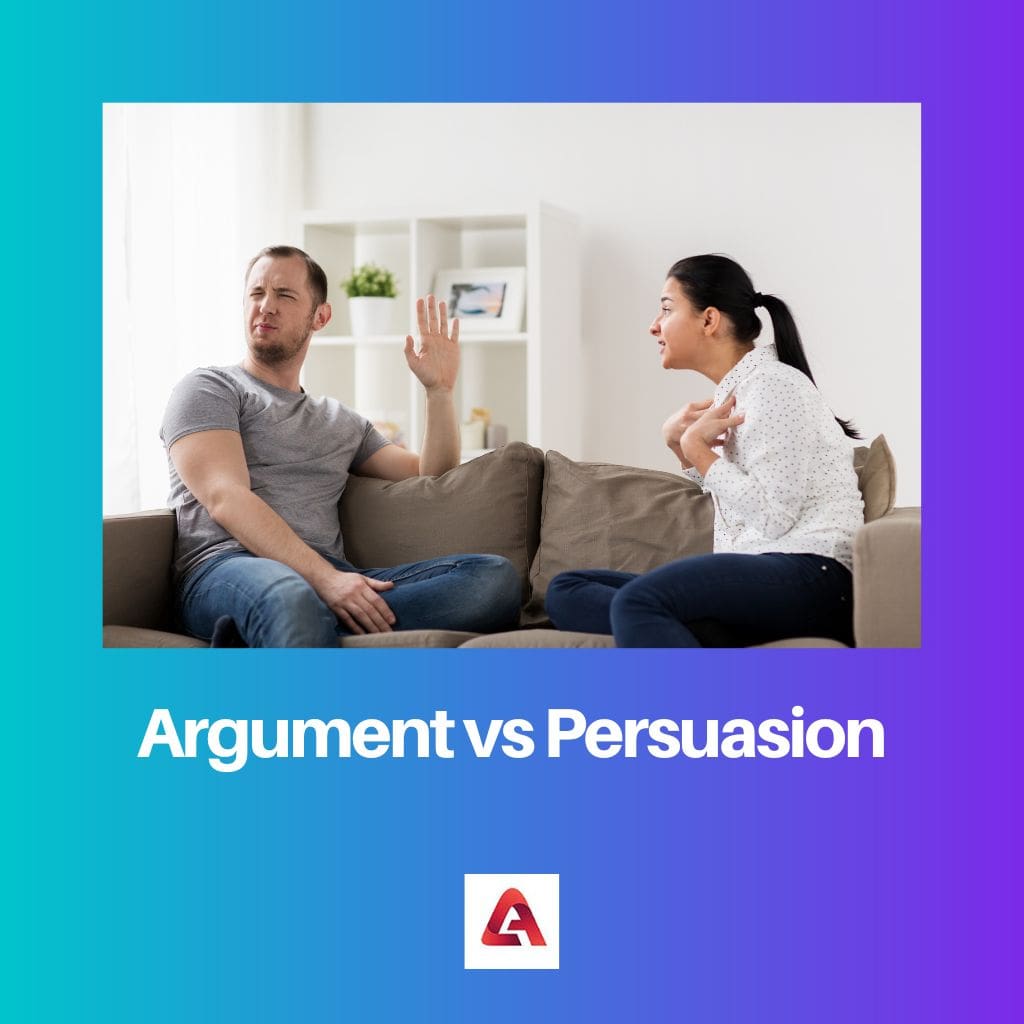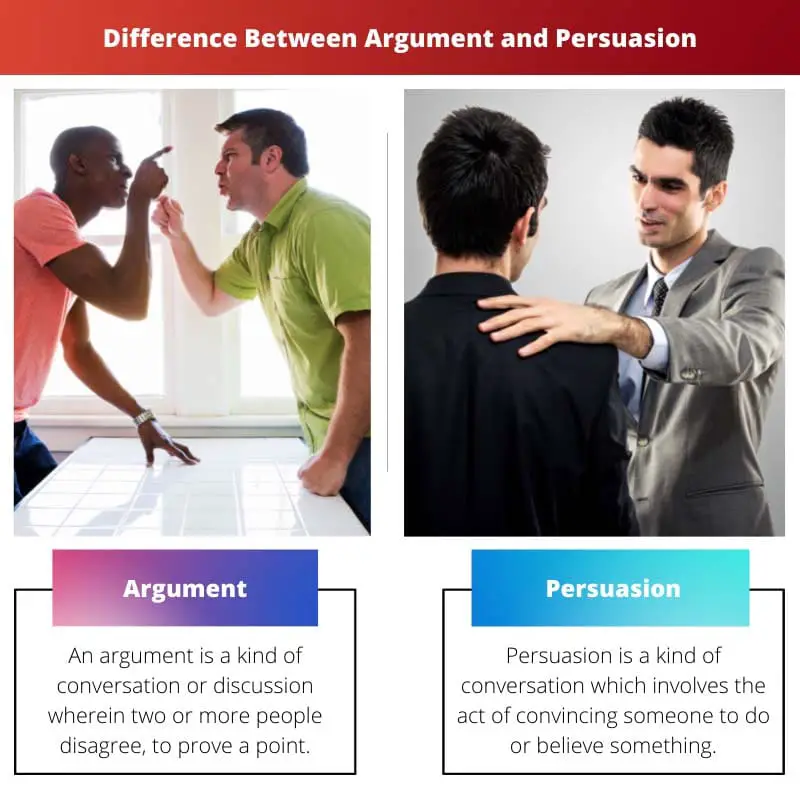Argument and Persuasion are two very popular terms used in the English language. These are two integral approaches to any conversation.
Human beings are social animals. They tend to talk things out from time to time.
A conversation is made up of various parts. Sometimes conversations rely on logic and evidence, and sometimes, on feelings and emotions.
Among the talks that they have, two important ways or methods of communicating are argument and persuasion. Both these terms involve completely different approaches to a conversation.
The motive of the two is different. Both are a result of two different approaches.
Other than being important ways of conversation, there isn’t much in common.
Key Takeaways
- Arguments focus on presenting logical reasoning and evidence to prove a point.
- Persuasion uses emotional appeals or rhetoric to change the audience’s beliefs or behaviors.
- Arguments prioritize objective truth, whereas persuasion targets subjective beliefs and opinions.
Argument vs Persuasion
Argumentation is the process of justifying your claims through proper debate backed up by fine research and factual as well as logical information. Persuasion is the process of influencing or persuading people with your own set of beliefs and ideas to change the thoughts, views, beliefs, ideas, and decision-making of the listener.

Comparison Table
| Parameter of Comparison | Argument | Persuasion |
|---|---|---|
| Meaning | An argument is a conversation or discussion wherein two or more people disagree to prove a point. | Persuasion is a kind of conversation which involves the act of convincing someone to do or believe something. |
| Relies on | An argument relies on evidence and logic. | Persuasion relies on feelings and emotions. |
| Tone | The tone of an argument is an aggressive one. | The tone of persuasion is calmer. |
| Purpose | An argument aims to ensure that other people recognise one’s side as the most valid and appropriate one. | Persuasion aims to ensure that other people agree with one’s opinion. It tries to convince people to believe in one’s side. |
| Presents | An argument presents multiple sides to an issue. | Persuasion presents one particular side of an issue. |
| Claims | Claims made in an argument are based on actual factual evidence. | Claims made in persuasion are based on one’s personal opinion. |
| Example | “Charles and I argued the best city to live in.” | “Charles persuaded me that Mumbai is the best city to live in”. |
What is Argument?
An argument is part of a conversation or a discussion wherein two or more people disagree to prove a point. It is done in anger.
Arguments use various reasons to prove that a particular view or opinion is accurate or true. The main purpose of it is to show other people that a specific view is correct or to establish a particular view.
It gives reasons for or against any particular subject under discussion. It aims to give recognition to one’s side of the story and prove the validity of that side of the story.
Arguments rely on logic and factual evidence. All claims made during an argument are made keeping in mind facts, reasons, comparisons, logic and so on.
Arguments are always based on logic. They tend to keep into consideration the opposite views and opinions as well.
Often, arguments tend to compare ideas and views to prove a point. They present the various sides to a story while focusing on one particular side.
The tone of an argument is an aggressive one.

What is Persuasion?
Persuasion is part of a conversation involving convincing someone to believe in something or to convince someone to do something. It is done by bringing forth ideas, beliefs or opinions.
The main purpose of persuasion is to change or motivate the audience. It aims to convince the audience to agree upon a particular idea or to take a particular course of action.
Persuasion relies on emotions and feelings. All claims made during persuasion are dependent on a person’s personal opinions, beliefs or experiences.
They aim to convince the audience that a particular view is right.
Persuasion does not take into consideration any counterclaims or any pieces of evidence. In persuasion, only those views presented help in building a position.

Main Differences Between Argument and Persuasion
- An argument is a discussion where two or more people disagree to prove a particular point. In contrast, persuasion is a discussion wherein people convince others to believe in or do something.
- An argument relies on logic and evidence, whereas persuasion depends on a person’s feelings or emotions.
- The main motive of an argument is to show someone that something is true or correct. On the other hand, the main motive of persuasion is to convince someone to believe something or to do something.
- Arguments use factual evidence to make claims, whereas persuasion uses personal opinions.
- An argument also discusses opposing views, whereas persuasion does not.
- An argument uses an aggressive tone, whereas persuasion uses a calmer tone.

- https://www.uni-muenster.de/imperia/md/content/psyifp/aeechterhoff/wintersemester2011-12/attitudesandsocialjudgment/petty_cacioppo_goldman_1981_jpsp.pdf
- https://link.springer.com/content/pdf/10.1007/BF00128148.pdf